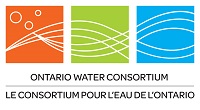Driving Innovation in Water Management: Reflections on the Ontario Greenhouse Workshop
Ontario’s greenhouse sector, anchored in Essex County, is a global leader in greenhouse vegetable production. Yet with this success comes increasing responsibility. On March 27, 2025, the Ontario Water Consortium (OWC), in partnership with the Ontario Greenhouse Vegetable Growers (OGVG), University of Windsor Agriculture UWindsor (AgUWin), and the Great Lakes Institute for Environmental Research (GLIER), convened a timely and impactful workshop to address one of the sector’s most urgent concerns: water.
Titled Exploring Water Management Challenges & Innovation in Ontario’s Greenhouse Sector, the workshop brought together a multidisciplinary group of over 80 participants including growers, researchers, engineers, water quality experts, policy-makers, and community representatives. The gathering marked a critical step toward identifying shared challenges, aligning priorities, and developing practical solutions to address the sector’s water usage and environmental impacts.
Ontario produces more than 80% of Canada’s greenhouse vegetables, primarily in Leamington and Kingsville. The region’s exponential growth in greenhouse operations has significantly increased pressure on water systems. The Union Water Supply System, which services both municipalities along with parts of Essex and Lakeshore, is facing rising demand; greenhouses currently use approximately half of its total water supply.
Workshop discussions underscored that effective water management is becoming an increasingly urgent issue in the region, driven by rising operational demands, stricter regulations, and sustainability pressures.
Compounding this are ecological concerns. Lake Erie, the source of much of the region’s water, is experiencing harmful algal blooms, in part linked to nutrient runoff from agricultural sources. Greenhouse wastewater, often rich in nitrogen and phosphorus, can pose a risk to downstream water quality if not properly managed.
Through a comprehensive SWOT analysis, participants assessed the current state of water management in the greenhouse sector. The analysis revealed important strengths, such as a strong regional knowledge base, adaptive innovation in response to regulatory pressures, and efficient nutrient recycling practices. At the same time, weaknesses such as dependency on centralized potable water, fragmented stakeholder coordination, and compliance gaps were acknowledged.
Among the key takeaways was a call to shift the language around water use — moving from “wastewater” to “water reuse” — in order to emphasize the value of effluent as a resource and encourage more circular practices
Participants identified multiple opportunities for improvement including the adoption of on-site water treatment systems, greater cross-sectoral collaboration, and public education campaigns. These ideas were not just hypothetical; they were framed as tangible actions that could lead to lasting change.
The workshop also tackled future-focused innovation through interactive brainstorming sessions. Attendees explored five key innovation areas:
- Large-scale dehumidification to capture and reuse plant transpiration.
- Onsite microbial sinks to reduce effluent nutrient loads.
- A comprehensive “effluent-to-influent” framework, incentivizing closed-loop water use.
- A research-informed digital toolkit to guide optimal water treatment practices
- Stronger research coordination and communication to accelerate scalable solutions.
Visioning a Sustainable Future
One of the most compelling components of the day was the collaborative envisioning of an ideal future greenhouse sector, one that is socially, economically, and environmentally sustainable. In this vision, greenhouses operate as fully enclosed systems, independent of external water inputs and without discharge. Effluent is treated as a resource rather than waste, rainwater and snowmelt are fully harnessed, and green infrastructure like wetlands is integrated into facility design.
Participants also emphasized the importance of harmonized policies, cross-sector partnerships, and inclusive decision-making, including Indigenous and community voices. Together, these elements point toward a future where greenhouse growth supports, not strains, local water resources.
Reflections shared during the closing discussions highlighted that sustaining momentum from this event will require ongoing collaboration, structured dialogue, and long-term commitment from all stakeholder groups.
The workshop was not an endpoint, but rather a springboard for ongoing collaboration and innovation. One immediate next step is synthesizing the knowledge shared into a practical toolkit that growers, researchers, and regulators can use to inform on-the-ground decisions. Several participants also expressed interest in forming a standing working group to continue the dialogue and drive implementation of workshop insights.
The strength of this event lay not only in the range of expertise assembled, but in the quality of conversations it enabled. By creating a forum for honest discussion, knowledge exchange, and creative problem-solving, the workshop advanced a critical dialogue at the intersection of agriculture, water management, and environmental sustainability.
For a detailed summary of discussions, insights, and proposed solutions, read the full event report here: Exploring Water Management Challenges and Innovation in Ontario’s Greenhouse Sector – Full Report (PDF)





